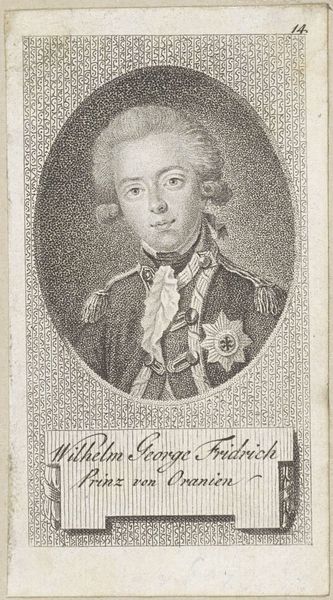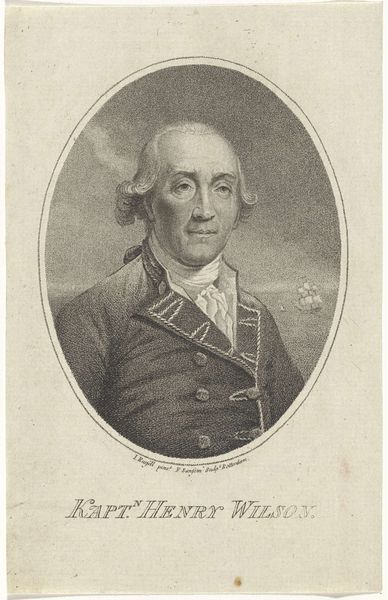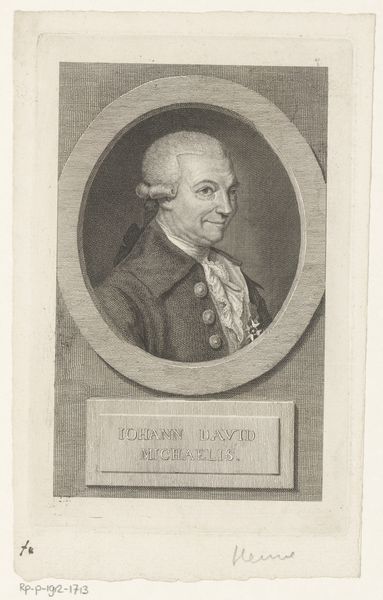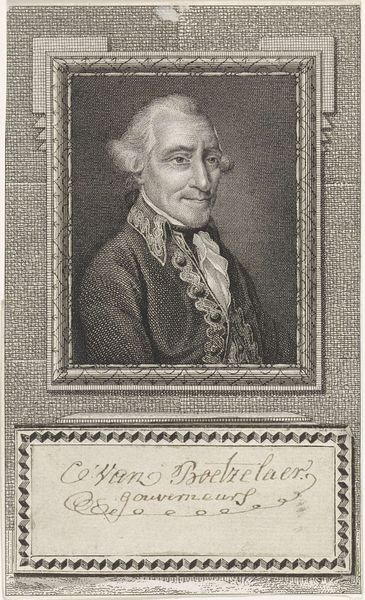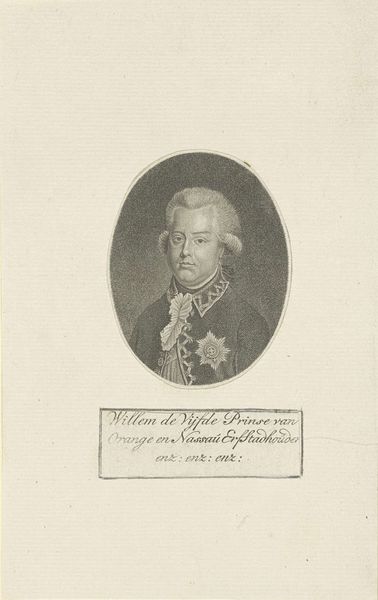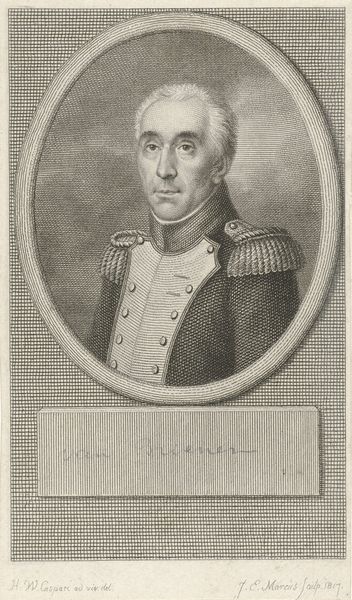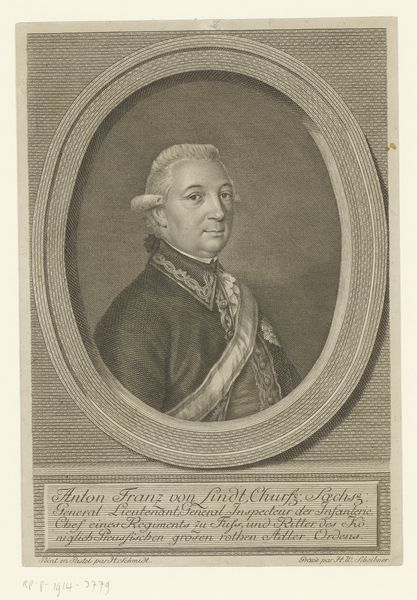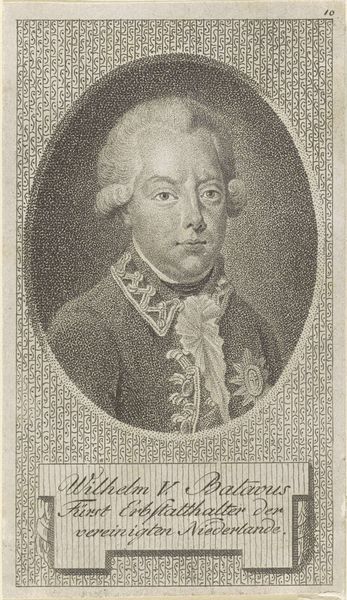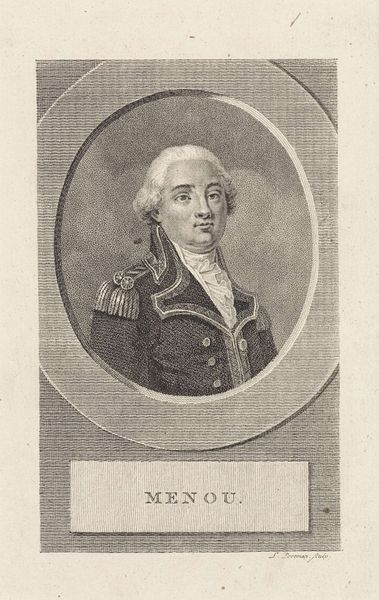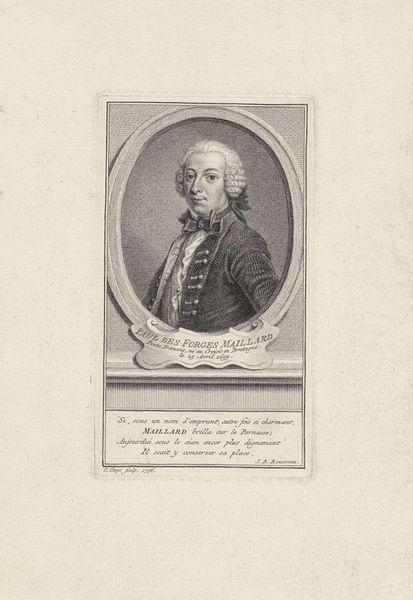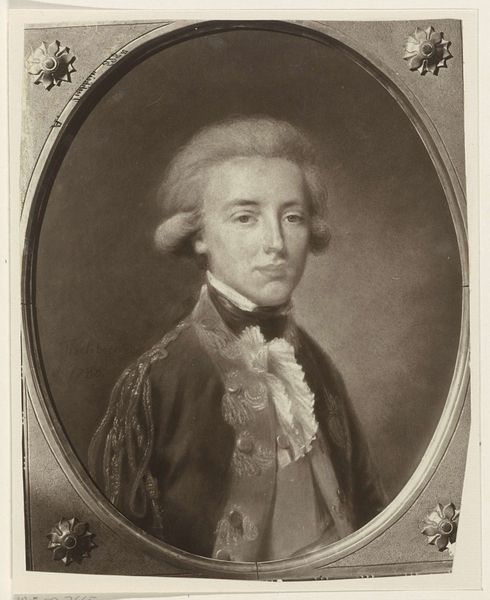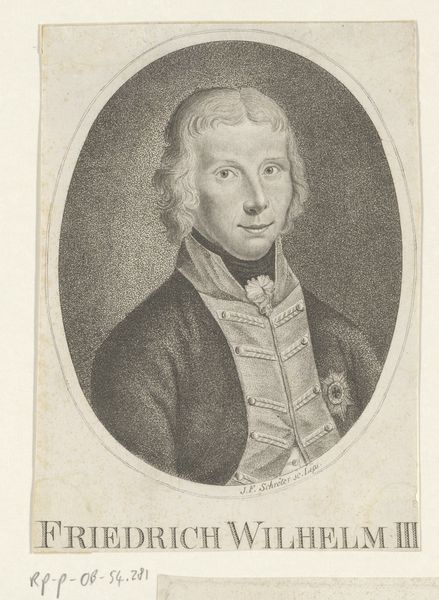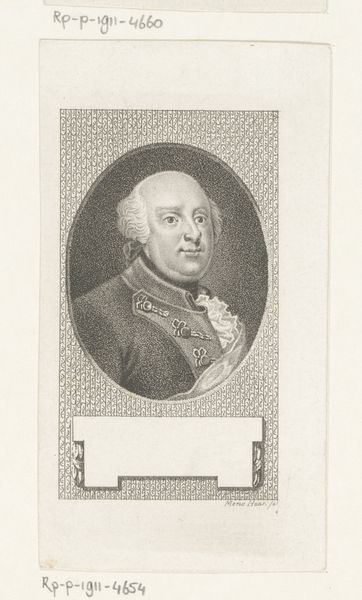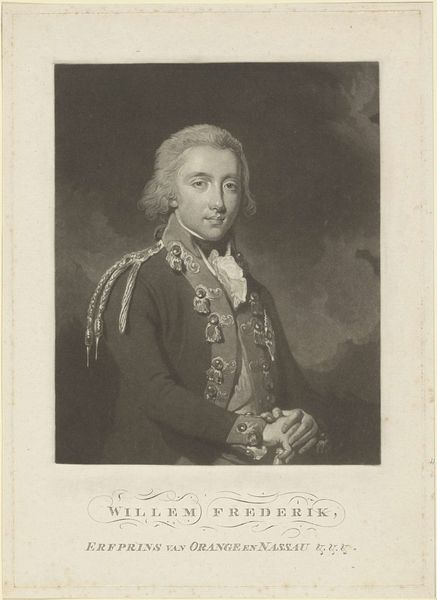
engraving
#
portrait
#
neoclacissism
#
history-painting
#
engraving
Dimensions: height 103 mm, width 55 mm
Copyright: Rijks Museum: Open Domain
This small portrait of Willem I Frederik, King of the Netherlands, was made anonymously using the technique of etching. The image is defined by its linear quality, achieved by drawing through a wax-coated metal plate and then using acid to bite away the exposed lines. This creates grooves that hold ink, which is then transferred to paper under high pressure. See how the intricate details of Willem’s jacket and the decorative background are rendered with fine, precise lines? Etching allowed for relatively easy reproduction, making images accessible to a wider audience. The process demanded skill and precision, linking it to both artistic and industrial practices. Consider the labor involved in each stage, from preparing the plate to printing the final image. This portrait is a reminder that even seemingly simple images involve complex processes and social contexts. Appreciating the materials and techniques employed allows us to see beyond the surface representation and understand its broader cultural significance, blurring the lines between craft and fine art.
Comments
No comments
Be the first to comment and join the conversation on the ultimate creative platform.
